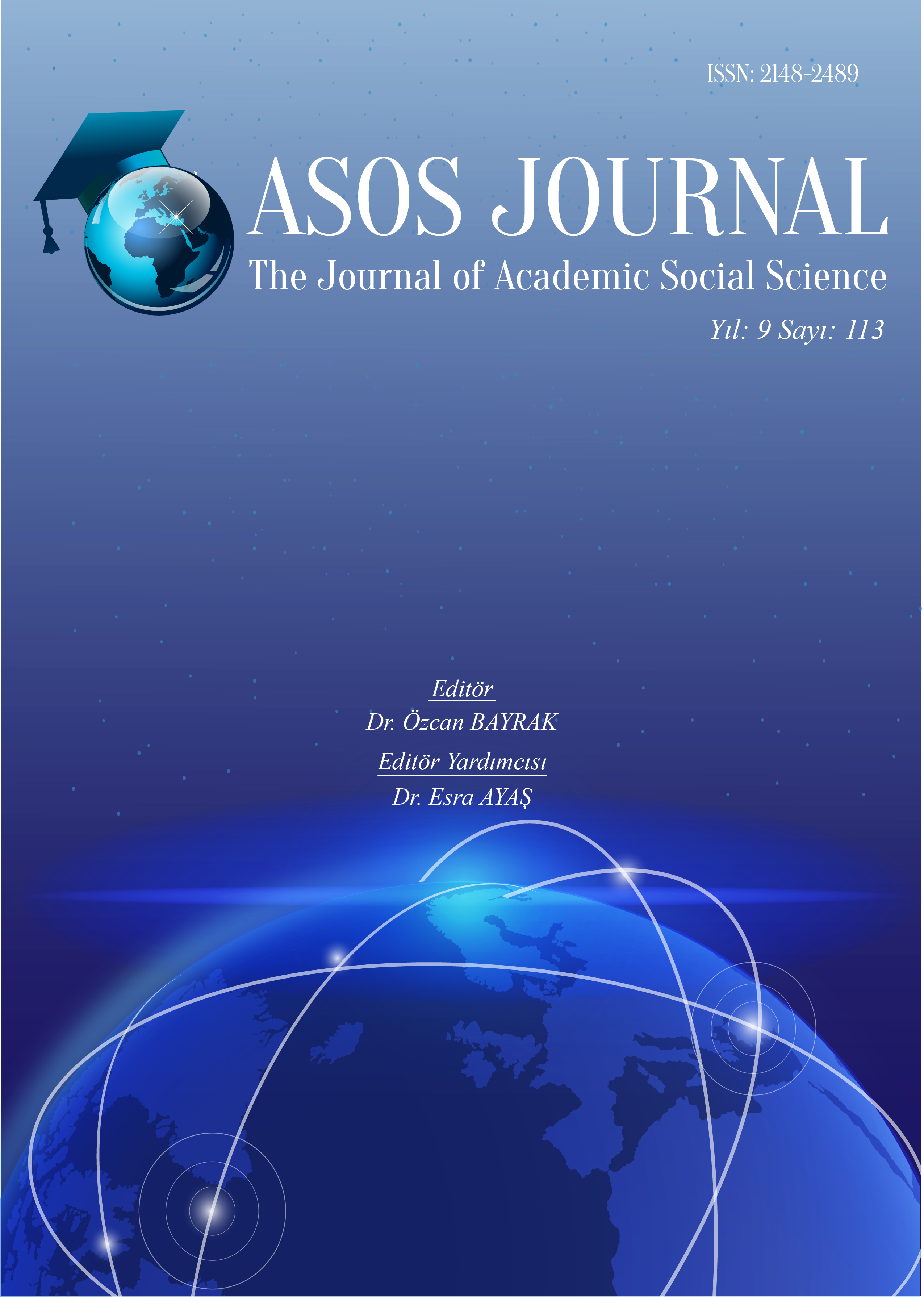Author :
Abstract
Bugün siyasal teorinin neredeyse mutlak bir hakikat olarak ele aldığı liberalizm eksenli parlamenter demokrasi anlayışına yönelik en ciddi eleştirilere Schmitt’in çalışmalarında rastlamak mümkündür. Weimar döneminin olgusal yapısı ve siyasal alanın normatifliği arasındaki çelişki, Versay Barış Antlaşması’nın ağır maddeleri bir çok tarihçi tarafından Nazi iktidarının oluşumuna neden olarak gösterilmiştir. Bu çalışmada Versay Antlaşmasını ideolojik ve ekonomik bir hesap olarak değerlendiren Schmitt’in parlamenter demokrasi eleştirisine yer verilecektir. Schmitt’in parlamenter demokrasiye yönelik eleştirilerisi esasında bir liberalizm eleştirisidir. Liberalizm Siyasal Olanı ahlakileştirmektedir ve bu ahlakileşme siyasal kavramının içini boşaltmaktadır. Liberal söylem nötürleştirmeler çağının bir ürünüdür ve bu çağ depolitikleştirmeyi de beraberinde getirmektedir. Siyasalın depolitikleşmesi, yani Schmittci anlamdaki özünü kaybetmesi, siyasal birliğin varlığı için bir tehdittir. Çoğulluğun yitik sahnesi olarak palamento, sonsuz müzakere ve hakikat arayışı, temsil, kimlik, özdeşlik çalışmanın ana hatlarını oluşturmaktadır.
Keywords
Abstract
Today, it is possible to occur the most serious criticisms of the liberalist-oriented parliamentary democracy in Schmitt's works. The contradiction between the factual structure of the Weimar period and the normativity of the political field, the heavy articles of The Treaty of Versailles were shown by many historians as the cause of the growing up the Nazi power. Schmitt evaluates the Versailles Treaty as an ideological and economic account. This study aims at investigating the Schmitt's critique of parliamentary democracy. Schmitt's criticism of parliamentary democracy is essentially a critique of liberalism. Liberalism moralizes the Political, and this moralization depolarises the concept of the political. Liberal discourse is a product of the age of neutralizations, and this neutralizations become grounds for depoliticization. The depoliticization of the political, that is, its loss of essence in the Schmittian sense, is a threat to the existence of political unity. Parliament as the failed scene of plurality, endless negotiation and seeking the truth, representation and identity constitute the main lines of the study.
Keywords
- Benoist, de A., (2011), “Die Aktualität Carl Schmitts”, Sezession: Carl Schmitt, Hrsg. Institut für Staatspolitik (IfS) içinde, Heft 42.
- Fijalkowski, J. (1958), “Die Wendung zum Führerstaat: Ideologische Komponenten in der politischen Philosophie Carl Schmitts”, Springer Fachmedien.
- Göztepe, E., (2015), “Bir Klasik Eser Olarak Carl Schmitt’in Anayasa Öğretisi”, İstanbul Üniversitesi Hukuk Fakültesi Mecmuası, Cilt 73, Sayı 1.
- Hansen, K., (1988), “Feindberührungen mit versönlichem Ausgang-Carl Schmitt und der Liberalismuskritik”, Carl Schmitt und die Liberalismuskritik içinde, Hrsg. Klaus Hansen, Hans Lietzmann, Leske+Budrich, Opladen.
- Kennedy, E.,(2004), “Constitutional Failure: Carl Schmitt in Weimar”, Duke University Press, London.
- Mouffe, C., (1999), “Carl Schmitt and the Paradox of Liberal Democracy”, The Challenge of Carl Schmitt içinde, Ed. Chantal Mouffe, Verso, London-New York.
- Mouffe, C., (2013) “Siyasal Üzerine”, Çev. Mehmet Ratip, İletişim Yayınları, İstanbul.
- Schmitt, C., (2012), “Siyasal Kavramı”, Çev. Ece Göztepe, Metsis Yayınları, İstanbul.
- Schmitt, C., (2008), “Constitutional Theory”, Çev. Jeffrey Seitzer, Duke University Press, Durham and London.
- Schmitt, C., (2010), “Parlamenter Demokrasinin Krizi”, Çev. A. Emre Zeybekoğlu, Dost Yayınları, Ankara.
- Thomsen, J. Als., (1997) “Carl Schmitt - The Hobbesian of the 20th Century?” Social Thought & Research, vol. 20, No. 1/2.
- Zeck, M., (2004), “Das Schwarze Korps: Geschichte und Gestalt des Organs der Reichsführung SS”, Max Niemeyer Verlag, Tübingen.
- dwds.de, “Das Wortauskunftssystem zur deutschen Sprache in Geschichte und Gegenwart”, erişim tarihi: 11.02.2020
- etymonline.com, Erişim tarihi: 11.02.2020





